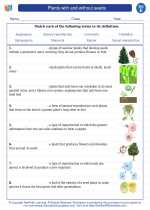Decomposers: Nature's Recyclers
Decomposers are a vital part of the ecosystem, playing a key role in breaking down organic matter and returning essential nutrients to the soil. These organisms, which include bacteria, fungi, and various invertebrates, are nature's recyclers, helping to maintain the balance of nutrients in the environment.
Types of Decomposers
There are several types of decomposers, each with its own unique role in the process of decomposition:
- Bacteria: These microscopic organisms are ubiquitous in the environment and are responsible for breaking down organic matter into simpler compounds.
- Fungi: Fungi, such as mushrooms and molds, are important decomposers, particularly in breaking down tough materials like wood and plant fibers.
- Invertebrates: Insects, worms, and other invertebrates also contribute to decomposition by physically breaking down organic matter and creating space for other decomposers to work.
Decomposition Process
The process of decomposition begins when organic matter, such as dead plants or animals, is broken down by decomposers. This process releases nutrients, such as nitrogen and phosphorus, back into the soil, where they can be taken up by plants and reused in the ecosystem.
Importance of Decomposers
Decomposers play a crucial role in maintaining the health of ecosystems. Without them, dead plant and animal matter would accumulate, leading to nutrient depletion and the loss of fertile soil. By breaking down organic matter, decomposers ensure that nutrients are recycled and made available to support new plant growth.
Study Guide: Decomposers
- Define the term "decomposer" and explain its role in the ecosystem.
- List and describe the three main types of decomposers.
- Describe the process of decomposition and how decomposers contribute to it.
- Explain the importance of decomposers in maintaining the health of ecosystems.
- Give examples of specific decomposers and the materials they help break down in the environment.
Understanding the role of decomposers in the ecosystem is crucial for appreciating the intricate balance of nature and the interconnectedness of all living organisms.
.◂Science Worksheets and Study Guides Fifth Grade. Plants with and without seeds
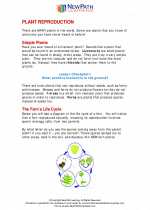
 Worksheet/Answer key
Worksheet/Answer key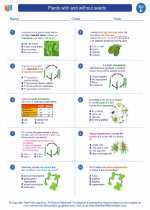
 Worksheet/Answer key
Worksheet/Answer key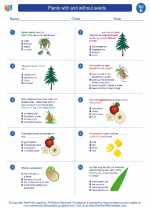
 Worksheet/Answer key
Worksheet/Answer key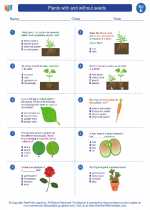
 Vocabulary/Answer key
Vocabulary/Answer key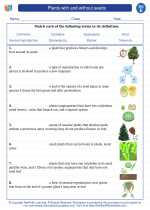
 Vocabulary/Answer key
Vocabulary/Answer key